All about Saudi Arabia
41 element(s) found
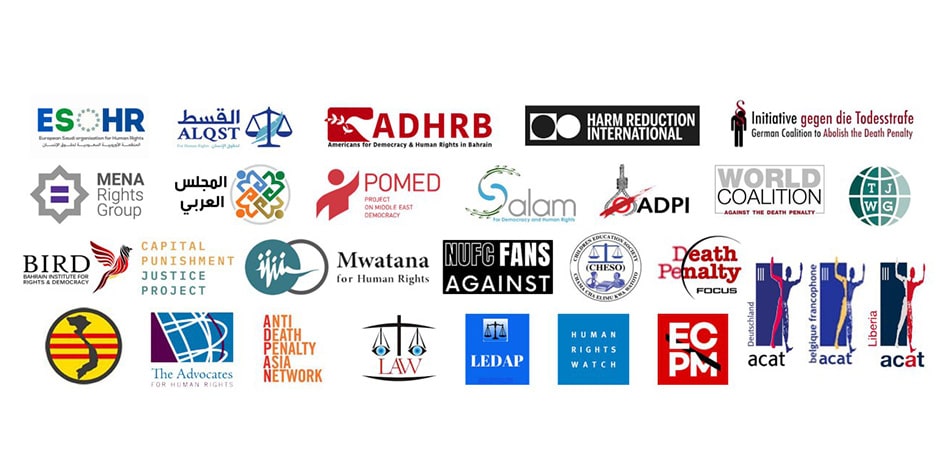
Article(s)
Escalating concerns over the lives of minors threatened with death in Saudi Arabia
on 3 May 2024
The undersigned organizations express their grave concern for the lives of minor defendants particularly the two young men, Yousif Al-Manasif and Ali Al-Mubaiouq, who are at imminent risk of execution in Saudi Arabia following confirmed information that the Specialized Criminal Court of Appeal (SCCA) has upheld their death sentences.
2024
Juveniles
Saudi Arabia
Document(s)
Migratory dependency and the death penalty: Foreign nationals facing capital punishment in the Gulf
By Lucy Harry, Carolyn Hoyle , and Jocelyn Hutton Death Penalty Research Unit, Centre for Criminology, University of Oxford, on 30 January 2024
2024
Academic Article
Jordan
Kuwait
Lebanon
Qatar
Saudi Arabia
United Arab Emirates
More details See the document
Published on July 2, 2023
This article focuses on the cases of 664 foreign nationals, the majority of whom are migrant workers, under sentence of death across the Gulf states (including Jordan and Lebanon) between 2016 and 2021. The features of these cases suggest that they are inextricably linked to migrant workers’ dependency under the kafala system, with examples of migrants duped into smuggling drugs across the border by their migrant broker, and once in country, accounts of violent altercations due to disputes about exit visas, and in the case of migrant domestic workers, self-defence against sexual violence. Engaging with the burgeoning literature on immigration, exploitation and criminalisation, as well as scholarship on capital punishment, this article will explore the multiple and unique layers of dependency fostered by the kafala system that place migrant workers at higher risk of the death penalty in these Gulf jurisdictions.
- Document type Academic Article
- Countries list Jordan / Kuwait / Lebanon / Qatar / Saudi Arabia / United Arab Emirates
Document(s)
الإعدام في السعودية 2023: دمويّة مستمرّة بأحكام غير معتادة
By European Saudi Organization for Human Rights (ESHOR), on 23 January 2024
2024
تقرير منظمة غير حكومية
Saudi Arabia
More details See the document
22 يناير، 2024
ترى المنظمة الأوروبية السعودية لحقوق الإنسان أن 2023 أظهرت التخبط في استخدام السعودية لعقوبة الإعدام. فإلى جانب التغير في أنواع الأحكام المنفذة بدون سبب واضح، وتنفيذ أحكام إعدام بتهم مخدرات، والاستخفاف بالآراء القانونية الدولية، تظهر الأرقام المرتفعة إصرار السعودية على استخدام عقوبة الإعدام دون روادع.
نفذت المملكة العربية السعودية في عام 2023، 172 حكم إعدام بحسب بيانات وزارة الداخلية التي تنشرها وكالة الأنباء الرسمية. عدد الإعدامات أكبر ب 15% من العدد الذي كانت وزارة الداخلية قد أعلنت عنه في 2022، حيث تم رصد 147 حكم، على الرغم من تنفيذ إعدام جماعي طال 81 شخصا في 2022.
نفذت المملكة العربية السعودية في عام 2023، 172 حكم إعدام بحسب بيانات وزارة الداخلية التي تنشرها وكالة الأنباء الرسمية. عدد الإعدامات أكبر ب 15% من العدد الذي كانت وزارة الداخلية قد أعلنت عنه في 2022، حيث تم رصد 147 حكم، على الرغم من تنفيذ إعدام جماعي طال 81 شخصا في 2022.
- Document type تقرير منظمة غير حكومية
- Countries list Saudi Arabia
Document(s)
Execution in Saudi Arabia 2023: Ongoing Bloodshed with Unusual Sentences
By The European Saudi Organization for Human Rights (ESOHR), on 23 January 2024
NGO report
Saudi Arabia
More details See the document
Published on 22 January، 2024.
The European Saudi Organization for Human Rights views 2023 as a year that demonstrated Saudi Arabia’s inconsistency in using the death penalty. Besides the unexplained shift in the types of executed sentences, the implementation of death sentences for drug-related charges, and the disregard for international legal opinions, the high numbers indicate Saudi Arabia’s determination to use the death penalty without restraint.
In Saudi Arabia in 2023, 172 executions were carried out according to data from the Ministry of Interior published by the official news agency. The number of executions increased by 15% compared to the figure announced by the Ministry of Interior in 2022, where 147 sentences were reported, despite the mass execution of 81 individuals in 2022.
- Document type NGO report
- Countries list Saudi Arabia
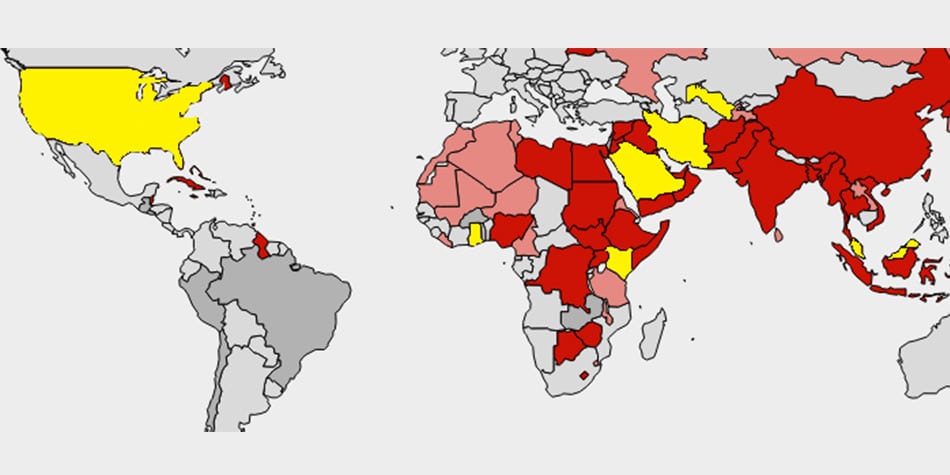
Article(s)
Mid-terms : Un premier semestre 2023 marqué par de multiples abolitions
By Nellia Halimi, on 9 October 2023
Les sept premiers mois de 2023 ont été riches pour la communauté abolitionniste avec un nouveau pays abolitionniste, un nouvel État abolitionniste aux États-Unis, ainsi que des progrès pour l’abolition dans de nombreux pays. Toutefois, certains pays continuent d’appliquer la peine de mort et le nombre d’exécutions a augmenté de manière alarmante.
2023
Ghana
Iran (Islamic Republic of)
Kenya
Malaysia
Saudi Arabia
Singapore
United States
Uzbekistan

Article(s)
Mid-terms: A first half of 2023 marked by multiple abolitions
By Nellia Halimi, on 9 October 2023
The first seven months of 2023 have been rich for the abolitionist community with a new abolitionist country, a new abolitionist state in the United States, as well as progress for abolition within multiple countries. However, some countries continue to use the death penalty and there have been alarming increases in executions.
Ghana
Iran (Islamic Republic of)
Kenya
Malaysia
Saudi Arabia
Singapore
Trend Towards Abolition
United States
Uzbekistan
Document(s)
The Death Penalty for Drug Offences: Global Overview 2022
on 24 March 2023
2023
NGO report
China
Democratic People's Republic of Korea
Drug Offenses
Indonesia
Iran (Islamic Republic of)
Malaysia
Saudi Arabia
Singapore
Viet Nam
More details See the document
Harm Reduction International has monitored the use of the death penalty for drug offences worldwide since our first ground-breaking publication on this issue in 2007. This report, our twelfth on the subject, continues our work of providing regular updates on legislative, policy and practical developments related to the use of capital punishment for drug offences, a practice which is a clear violation of international standards. As of December 2022, Harm Reduction International (HRI) recorded at least 285 executions for drug offences globally during the year, a 118% increase from 2021, and an 850% increase from 2020. Executions for drug offences are confirmed or assumed to have taken place in six countries: Iran, Saudi Arabia, Singapore, plus in China, North Korea and Vietnam – on which exact figures cannot be provided because of extreme opacity. Therefore, this figure is likely to reflect only a percentage of all drug-related executions worldwide. Confirmed death sentences for drug offences were also on the rise; with at least 303 people sentenced to death in 18 countries. This marks a 28% increase from 2021.
- Document type NGO report
- Countries list China / Democratic People's Republic of Korea / Indonesia / Iran (Islamic Republic of) / Malaysia / Saudi Arabia / Singapore / Viet Nam
- Themes list Drug Offenses
Document(s)
Bloodshed and Lies: Mohammed bin Salman’s Kingdom of Executions
By Reprieve UK and European Saudi Organization for Human Rights, on 31 January 2023
2023
NGO report
Saudi Arabia
arMore details See the document
Saudi Arabia is a flagrant abuser of the right to life. Between 2010 and 2021, Saudi Arabia executed at least 1243 people, making it one of the most rampant executioners in the world. As of December 2022, the Saudi regime had executed at least a further 147 people in 2022, including 81 people in one day in a mass execution on 12 March 2022.
Saudi Arabia’s use of the death penalty has drastically increased since 2015. This escalation has taken place on the watch of Saudi Arabia’s King Salman, who acceded the throne on 23 January 2015, and his son, Crown Prince and Prime Minister Mohammed bin Salman. The annual rate of executions has almost doubled since King Salman and Mohammed bin Salman came to power in 2015. From 2010-2014 there was an average of 70.8 executions per year. From 2015-2022 there was an average of 129.5 executions per year – a rise of 82%. The six bloodiest years of executions in Saudi Arabia’s recent history have all occurred under the leadership of Mohammed bin Salman and King Salman (2015, 2016, 2017, 2018, 2019 and 2022).
- Document type NGO report
- Countries list Saudi Arabia
- Available languages سفك الدماء والأكاذيب: مملكة إعدام محمد بن سلمان

Article(s)
35 منظمة غير حكومية تدعو جهات أممية إلى إدانة إعدامات المخدرات في السعودية والسعي لوقفها
By المنظمة الأوروبية السعودية لحقوق الإنسان, on 1 December 2022
دعت المنظمة الأوروبية السعودية لحقوق الإنسان، والمنظمة الدولية للحد من الأضرار، إلى جانب 33 منظمة غير حكومية أخرى، كل من الهيئة الدولية لمراقبة المخدرات ومكتب الأمم المتحدة المعني بالمخدرات والجريمة، إلى العمل على إجراءات عاجلة ردا على سلسلة عمليات الإعدام المتعلقة بتهم مخدرات والتي نفذتها المملكة العربية السعودية منذ 10 نوفمبر 2022.
2022
Drug Offenses
Saudi Arabia

Article(s)
Calling on international bodies to condemn drug executions in Saudi Arabia and seek to stop them
By European Saudi Organization for Human Rights, on 1 December 2022
The European Saudi Organization for Human Rights and Harm Reduction International, and the World Coalition Against the Death Penalty along with 32 other NGOs have called on the International Narcotics Control Board and the United Nations Office on Drugs and Crime to act on urgent measures in response to the series of drug-related executions carried […]
Drug Offenses
Saudi Arabia
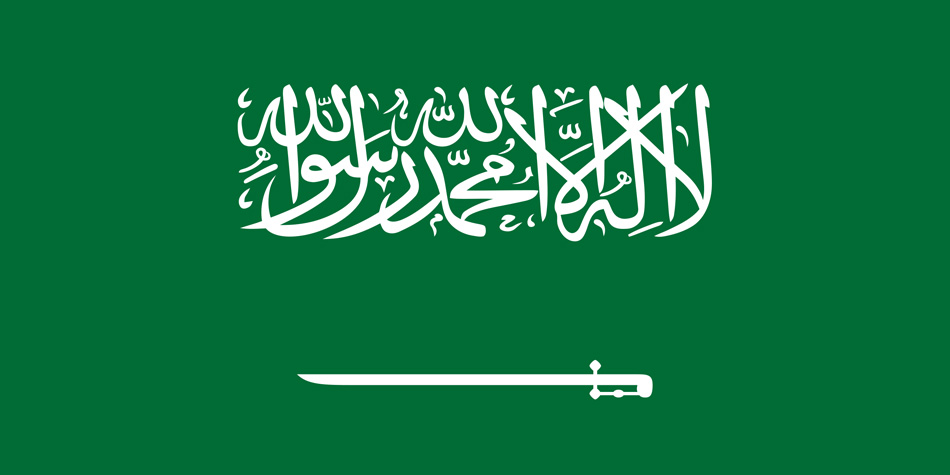
Article(s)
Saudi Arabian Mass execution of 81 men
By Anissa Aguedal, World Coalition Against the Death Penalty, on 4 April 2022
Saudi Arabia: the largest mass execution in this country in years The kingdom of Saudi Arabia executed 81 men on March 12, 2022, all of whom had been convicted of a wide range of offences, including “terrorism”- related crimes, murder, armed robbery, and arms smuggling. Those put to death included seven Yemenis, one Syrian and […]
2022
Moratorium
Public Opinion
Saudi Arabia

Article(s)
Middle East and North Africa: Abolitionist civil societies in full swing despite a difficult context
By Aurelie Placais, World Coalition Against the Death Penalty, on 15 February 2022
On the occasion of the publication of the Human Rights Watch World Report 2022, the World Coalition looks back at recent developments and civil society mobilization against the death penalty in the Arab world.
2022
Bahrain
Egypt
Fair Trial
Iraq
Moratorium
Morocco
Saudi Arabia
State of Palestine
Terrorism
Tunisia
Document(s)
Worked to Death: A study on migrant workers and capital punishment
By Migrant Care and Reprieve, on 24 November 2021
2021
NGO report
Fair Trial
Indonesia
Legal Representation
Malaysia
Nigeria
Pakistan
Saudi Arabia
Women
More details See the document
Foreign nationals, and within this group migrant workers, are a population that disproportionately faces the death penalty around the world. The data and statistics gathered by Reprieve and Migrant CARE for this report show that migrant workers as a sub-set of the foreign national population are at grave risk of human rights violations related to the death penalty, including arbitrary deprivation of the right to life in the context of unlawful death sentences and executions.
This report focuses on: states that receive migrant workers (‘receiving states’), in particular the states that make up the Association of South East Asian Nations or ASEAN (‘South East Asian states’) and the Gulf Cooperation Council (‘Gulf states’), and on states from which migrant workers travel to work (‘sending states’).
- Document type NGO report
- Countries list Indonesia / Malaysia / Nigeria / Pakistan / Saudi Arabia
- Themes list Fair Trial / Legal Representation / Women
Document(s)
Killing in the Name of God: State-sanctioned Violations of Religious Freedom
By Eleos Justice, Monash University, on 10 November 2021
2021
Academic report
Brunei Darussalam
Iran (Islamic Republic of)
Maldives
Mauritania
Nigeria
Qatar
Saudi Arabia
Somalia
United Arab Emirates
Yemen
More details See the document
As of 2020, blasphemy was formally criminalised in some 84 countries. As many as 21 countries criminalised apostasy as of 2019. The legal penalties for such offences range from fines to imprisonment to corporal punishment—and in at least 12 countries, the death penalty.
This report examines the extent to which States commit, or are complicit in, killings that violate religious freedom. Focussing on the 12 States in which offences against religion are lawfully punishable by death, we examine four different types of State-sanctioned killings on the basis of religious offence (apostasy, blasphemy, or alike) or affiliation (most commonly, membership of a religious minority): judicial executions, extrajudicial killings, killings by civilians, and killings by extremist groups. We explore the relationship between the retention of the death penalty for religious offences and other forms of State-sanctioned killings motivated by alleged religious offending or by religious identity.
- Document type Academic report
- Countries list Brunei Darussalam / Iran (Islamic Republic of) / Maldives / Mauritania / Nigeria / Qatar / Saudi Arabia / Somalia / United Arab Emirates / Yemen
Document(s)
The Process of Abolishing the Death Penalty in Members States of the Organisation of Islamic Cooperation
By Nael Georges, ECPM, on 27 November 2020
2020
NGO report
Afghanistan
Albania
Algeria
Azerbaijan
Bahrain
Brunei Darussalam
Burkina Faso
Cameroon
Chad
Comoros
Djibouti
Egypt
Indonesia
Iran (Islamic Republic of)
Iraq
Jordan
Kazakhstan
Kuwait
Kyrgyzstan
Lebanon
Libya
Malaysia
Maldives
Mali
Morocco
Mozambique
Niger
Nigeria
Oman
Qatar
Saudi Arabia
Sierra Leone
Somalia
Sudan
Suriname
Tajikistan
Togo
Tunisia
Turkey
Turkmenistan
Uganda
United Arab Emirates
Uzbekistan
arfrMore details See the document
As the 47th session of the Council of Ministers of Foreign Affairs of the Organisation of Islamic Cooperation (OIC) is being held on 27-28 November 2020 in Niamey, Niger, ECPM and Nael Georges release this study, “The Process of Abolishing the Death Penalty in Member States of the Organisation of Islamic Cooperation”.
- Document type NGO report
- Countries list Afghanistan / Albania / Algeria / Azerbaijan / Bahrain / Brunei Darussalam / Burkina Faso / Cameroon / Chad / Comoros / Djibouti / Egypt / Indonesia / Iran (Islamic Republic of) / Iraq / Jordan / Kazakhstan / Kuwait / Kyrgyzstan / Lebanon / Libya / Malaysia / Maldives / Mali / Morocco / Mozambique / Niger / Nigeria / Oman / Qatar / Saudi Arabia / Sierra Leone / Somalia / Sudan / Suriname / Tajikistan / Togo / Tunisia / Turkey / Turkmenistan / Uganda / United Arab Emirates / Uzbekistan
- Available languages مسارمإلغاء عقوبة الإعدافي الدول الأعضاءفي منظمة التعاونالإسلاميLes processus d’abolition de la peine de mort dans les États membres de l’Organisation de la coopération islamique (OCI)
Document(s)
Note verbale dated 13 September 2019 from the Permanent Representative of Egypt to the United Nations addressed to the Secretary-General
By United Nations, on 15 October 2020
2020
United Nations report
Bahrain
Bangladesh
Botswana
Brunei Darussalam
Chad
China
Democratic People's Republic of Korea
Egypt
Ethiopia
Grenada
Iran (Islamic Republic of)
Iraq
Jamaica
Kuwait
Libya
Moratorium
Nigeria
Oman
Pakistan
Papua New Guinea
Qatar
Saint Kitts and Nevis
Saint Lucia
Saint Vincent and the Grenadines
Saudi Arabia
Singapore
Sudan
Syrian Arab Republic
United Arab Emirates
Yemen
Zimbabwe
aresfrruzh-hantMore details See the document
The Permanent Missions to the United Nations inNew York listed below have the honour to refer to General Assembly resolution 73/175, entitled “Moratorium on the use of the death penalty”, which was adopted by the Assembly on 17 December 2018 by a recorded vote. The Permanent Missions wish to place on record that they are in persistent objection to any attempt to impose a moratorium on the use of the death penalty or its abolition in contravention of existing stipulations under international law, for the following reasons:
- Document type United Nations report
- Countries list Bahrain / Bangladesh / Botswana / Brunei Darussalam / Chad / China / Democratic People's Republic of Korea / Egypt / Ethiopia / Grenada / Iran (Islamic Republic of) / Iraq / Jamaica / Kuwait / Libya / Nigeria / Oman / Pakistan / Papua New Guinea / Qatar / Saint Kitts and Nevis / Saint Lucia / Saint Vincent and the Grenadines / Saudi Arabia / Singapore / Sudan / Syrian Arab Republic / United Arab Emirates / Yemen / Zimbabwe
- Themes list Moratorium
- Available languages مذكرة شفوية مؤرخة 13 أيلول/سبتمبر 2019 موجهة إلى الأمين العام من الممثل الدائم لمصر لدى الأمم المتحدةNota verbal de fecha 13 de septiembre de 2019 dirigida al Secretario Generalpor el Representante Permanente de Egipto ante las Naciones UnidasNote verbale datée du 13 septembre 2019, adressée au Secrétaire général par le Représentant permanent de l’Égypte auprès de l’Organisation des Nations UniesВербальная нота Постоянного представителя Египта при Организации Объединенных Наций от 13 сентября 2019 года на имя Генерального секретаря2019年9月13日埃及常驻联合国代表给秘书长的普通照会
Document(s)
Muzzling critical voices: Politicized trials before Saudi Arabia’s Specialized Criminal Court
By Amnesty International, on 8 September 2020
2020
NGO report
Saudi Arabia
aresarfrMore details See the document
Despite the Saudi Arabian authorities’ rhetoric about reforms, they have unleashed an intense crackdown on citizens promoting change in the last few years. One of the instruments of that repression has been the Specialized Criminal Court (SCC), which was set up in 2008 to try individuals accused of terror-related crimes. Amnesty International has documented the cases of 95 individuals who were tried before the SCC between 2011 and 2019. It has concluded that the SCC’s judges have presided over grossly unfair trials, handing down prison sentences of up to 30 years and numerous death sentences, in an effort to silence dissent.
- Document type NGO report
- Countries list Saudi Arabia
- Themes list Country/Regional profiles, Terrorism,
- Available languages AR Muzzling critical voicesArabia Saudí: Silenciar las voces críticas: Juicios politizados ante el Tribunal Penal Especializado de Arabia Saudí - Resumen ejecutivo y conclusionesتكميم الأفواه المعارِضة: محاكمات مسيّسة أمام المحكمة الجزائية المتخصصة في السعوديةArabie Saoudite: Reduire les voix critiques au silence: Des proces politises devant le Tribunal penal special en Arabie Saoudite
Document(s)
Note verbale dated 28 July 2015 from the Permanent Mission of Egypt to the United Nations addressed to the Secretary-General
By United Nations, on 8 September 2020
United Nations report
Antigua and Barbuda
Bangladesh
Botswana
Brunei Darussalam
China
Democratic People's Republic of Korea
Egypt
Ethiopia
Guyana
Iran (Islamic Republic of)
Iraq
Jamaica
Kuwait
Libya
Malaysia
Moratorium
Nigeria
Oman
Pakistan
Qatar
Saudi Arabia
Singapore
Sudan
Syrian Arab Republic
Trinidad and Tobago
United Arab Emirates
Yemen
Zimbabwe
aresfrruzh-hantMore details See the document
The permanent missions to the United Nations in New York listed below have the honour to refer to General Assembly resolution 69/186, entitled “Moratorium on the use of the death penalty”, which was adopted by the Third Committee on 21 November 2014 and subsequently by the General Assembly on 18 December 2014 by a recorded vote. The permanent missions wish to place on record that they are in persistent objection to any attempt to impose a moratorium on the use of the death penalty or its abolition in contravention of existing stipulations under international law, for the following reasons:
- Document type United Nations report
- Countries list Antigua and Barbuda / Bangladesh / Botswana / Brunei Darussalam / China / Democratic People's Republic of Korea / Egypt / Ethiopia / Guyana / Iran (Islamic Republic of) / Iraq / Jamaica / Kuwait / Libya / Malaysia / Nigeria / Oman / Pakistan / Qatar / Saudi Arabia / Singapore / Sudan / Syrian Arab Republic / Trinidad and Tobago / United Arab Emirates / Yemen / Zimbabwe
- Themes list Moratorium
- Available languages مذكرة شفوية مؤرخة 28 تموز/يوليه ٢٠١٥ موجهة إلى الأمين العام من البعثة الدائمة لمصر لدى الأمم المتحدةNota verbal de fecha 28 de julio de 2015 dirigida al Secretario General por la Misión Permanente de Egipto ante las Naciones UnidasNote verbale datée du 28 juillet 2015, adressée au Secrétaire général par la Mission permanente de l’Égypte auprès de l’Organisation des Nations UniesВербальная нота Постоянного представительства Египта при Организации Объединенных Наций от 28 июля 2015 года на имя Генерального секретаря2015年7月28日埃及常驻联合国代表团给秘书长的普通照会
Document(s)
Killing in the Name of Justice. The Death Penalty in Saudi Arabia
By Amnesty International / Amnesty International UK, on 8 September 2020
NGO report
Saudi Arabia
More details See the document
The 2015 Amnesty International’s Report on Saudi Arabia gravely confirms that Saudi Arabia remains one of the most prolific executioners in the world. Between January 1985, the earliest year from when information on executions is available, and June 2015 it executed at least 2,200 persons, almost half of whom were foreign nationals. Over one third of these executions were carried out for offences that do not meet the threshold of “most serious crimes” for which the death penalty can be imposed under international law. Most of these crimes, such as drug-related offences, are not mandatorily punishable by death according to the authorities’ interpretation of Islamic Shari’a law.
- Document type NGO report
- Countries list Saudi Arabia
- Themes list Drug Offences, Foreign Nationals, Most Serious Crimes, Death Penalty,
Document(s)
Note verbale dated 16 April 2013 from the Permanent Mission of Egypt to the United Nations addressed to the Secretary-General
By United Nations, on 8 September 2020
United Nations report
Afghanistan
Antigua and Barbuda
Bahrain
Bangladesh
Barbados
Botswana
Brunei Darussalam
Chad
China
Democratic People's Republic of Korea
Egypt
Equatorial Guinea
Eritrea
Eswatini
Ethiopia
Grenada
Guyana
India
Iran (Islamic Republic of)
Iraq
Jamaica
Kuwait
Lao People's Democratic Republic
Libya
Malaysia
Mauritania
Moratorium
Myanmar
Nigeria
Oman
Pakistan
Papua New Guinea
Qatar
Saint Kitts and Nevis
Saint Lucia
Saint Vincent and the Grenadines
Saudi Arabia
Singapore
Solomon Islands
Somalia
Sudan
Syrian Arab Republic
Tonga
Trinidad and Tobago
Uganda
United Arab Emirates
Yemen
Zimbabwe
aresfrruzh-hantMore details See the document
The permanent missions to the United Nations in New York listed below have the honour to refer to General Assembly resolution 67/176, entitled “Moratorium on the use of the death penalty”, which was adopted by the Third Committee on 19 November 2012, and subsequently by the General Assembly on 20 December 2012 by a recorded vote. The permanent missions wish to place on record that they are in persistent objection to any attempt to impose a moratorium on the use of the death penalty or its abolition in contravention of existing stipulations under international law, for the following reasons:
- Document type United Nations report
- Countries list Afghanistan / Antigua and Barbuda / Bahrain / Bangladesh / Barbados / Botswana / Brunei Darussalam / Chad / China / Democratic People's Republic of Korea / Egypt / Equatorial Guinea / Eritrea / Eswatini / Ethiopia / Grenada / Guyana / India / Iran (Islamic Republic of) / Iraq / Jamaica / Kuwait / Lao People's Democratic Republic / Libya / Malaysia / Mauritania / Myanmar / Nigeria / Oman / Pakistan / Papua New Guinea / Qatar / Saint Kitts and Nevis / Saint Lucia / Saint Vincent and the Grenadines / Saudi Arabia / Singapore / Solomon Islands / Somalia / Sudan / Syrian Arab Republic / Tonga / Trinidad and Tobago / Uganda / United Arab Emirates / Yemen / Zimbabwe
- Themes list Moratorium
- Available languages مذكرة شفوية مؤرخة 16 نيسان/أبريل 2013 موجهة إلى الأمين العام من البعثة الدائمة لمصر لدى الأمم المتحدةNota verbal de fecha 16 de abril de 2013 dirigida al Secretario General por la Misión Permanente de Egipto ante las Naciones UnidasNote verbale datée du 16 avril 2013, adressée au Secrétaire général par la Mission permanente de l’Égypte auprès de l’Organisation des Nations UniesВербальная нота Постоянного представительства Египта при Организации Объединенных Наций от 16 апреля 2013 года на имя Генерального секретаря2013年4月16日埃及常驻联合国代表团给秘书长的普通照会
Document(s)
Note verbale dated 11 March 2011 from the Permanent Mission of Egypt to the United Nations addressed to the Secretary-General
By United Nations, on 8 September 2020
United Nations report
Afghanistan
Antigua and Barbuda
Bahamas
Bahrain
Bangladesh
Barbados
Botswana
Brunei Darussalam
Central African Republic
Chad
China
Democratic People's Republic of Korea
Democratic Republic of the Congo
Dominica
Egypt
Equatorial Guinea
Eritrea
Eswatini
Ethiopia
Grenada
Guinea
Guyana
Indonesia
Iran (Islamic Republic of)
Iraq
Jamaica
Kuwait
Lao People's Democratic Republic
Libya
Malaysia
Moratorium
Myanmar
Niger
Nigeria
Oman
Pakistan
Papua New Guinea
Qatar
Saint Kitts and Nevis
Saint Lucia
Saint Vincent and the Grenadines
Saudi Arabia
Sierra Leone
Singapore
Solomon Islands
Somalia
Sudan
Syrian Arab Republic
Tonga
Trinidad and Tobago
Uganda
United Arab Emirates
Yemen
Zimbabwe
aresfrruzh-hantMore details See the document
The permanent missions to the United Nations in New York listed below have the honour to refer to General Assembly resolution 65/206, entitled “Moratorium on the use of the death penalty”, which was adopted by the Third Committee on 11 November 2010, and subsequently by the General Assembly on 21 December 2010 by a recorded vote. The permanent missions wish to place on record that they are in persistent objection to any attempt to impose a moratorium on the use of the death penalty or its abolition in contravention of existing stipulations under international law, for the following reasons:
- Document type United Nations report
- Countries list Afghanistan / Antigua and Barbuda / Bahamas / Bahrain / Bangladesh / Barbados / Botswana / Brunei Darussalam / Central African Republic / Chad / China / Democratic People's Republic of Korea / Democratic Republic of the Congo / Dominica / Egypt / Equatorial Guinea / Eritrea / Eswatini / Ethiopia / Grenada / Guinea / Guyana / Indonesia / Iran (Islamic Republic of) / Iraq / Jamaica / Kuwait / Lao People's Democratic Republic / Libya / Malaysia / Myanmar / Niger / Nigeria / Oman / Pakistan / Papua New Guinea / Qatar / Saint Kitts and Nevis / Saint Lucia / Saint Vincent and the Grenadines / Saudi Arabia / Sierra Leone / Singapore / Solomon Islands / Somalia / Sudan / Syrian Arab Republic / Tonga / Trinidad and Tobago / Uganda / United Arab Emirates / Yemen / Zimbabwe
- Themes list Moratorium
- Available languages مذكرة شفوية مؤرخة 11 آذار/مارس 2011 موجَّهة إلى الأمين العام من البعثة الدائمة لمصر لدى الأمم المتحدةNota verbal de fecha 11 de marzo de 2011 dirigida al Secretario General por la Misión Permanente de Egipto ante las Naciones UnidasNote verbale datée du 11 mars 2011, adressée au Secrétaire général par la Mission permanente de l’Égypte auprès de l’Organisation des Nations UniesВербальная нота Постоянного представительства Египта при Организации Объединенных Наций от 11 марта 2011 года на имя Генерального секретаря2011年3月11日埃及常驻联合国代表团给秘书长的普通照会
Document(s)
Note verbale dated 10 February 2009 from the Permanent Missions to the United Nations of Afghanistan, the Bahamas, […] and Zimbabwe addressed to the Secretary-General
By United Nations, on 8 September 2020
United Nations report
Afghanistan
Bahamas
Bahrain
Bangladesh
Barbados
Botswana
Brunei Darussalam
Central African Republic
Chad
China
Comoros
Democratic People's Republic of Korea
Dominica
Egypt
Equatorial Guinea
Eritrea
Eswatini
Ethiopia
Fiji
Gambia
Grenada
Guinea
Guyana
Indonesia
Iran (Islamic Republic of)
Iraq
Jamaica
Japan
Jordan
Kuwait
Lao People's Democratic Republic
Libya
Malaysia
Maldives
Mauritania
Mongolia
Moratorium
Myanmar
Niger
Nigeria
Papua New Guinea
Qatar
Saint Kitts and Nevis
Saint Lucia
Saint Vincent and the Grenadines
Saudi Arabia
Singapore
Solomon Islands
Somalia
Sudan
Suriname
Syrian Arab Republic
Thailand
Tonga
Trinidad and Tobago
Uganda
United Arab Emirates
Yemen
Zimbabwe
aresfrruzh-hantMore details See the document
The Permanent Missions to the United Nations in New York listed below present their compliments to the Secretary-General of the United Nations and have the honour to refer to resolution 62/149, entitled “Moratorium on the use of the death penalty”, which was adopted by the Third Committee on 15 November 2007, and subsequently by the General Assembly on 18 December 2007 by a recorded vote. The Permanent Missions wish to place on record that they are in persistent objection to any attempt to impose a moratorium on the use of the death penalty or its abolition in contravention to existing stipulations under international law, for the following reasons:
- Document type United Nations report
- Countries list Afghanistan / Bahamas / Bahrain / Bangladesh / Barbados / Botswana / Brunei Darussalam / Central African Republic / Chad / China / Comoros / Democratic People's Republic of Korea / Dominica / Egypt / Equatorial Guinea / Eritrea / Eswatini / Ethiopia / Fiji / Gambia / Grenada / Guinea / Guyana / Indonesia / Iran (Islamic Republic of) / Iraq / Jamaica / Japan / Jordan / Kuwait / Lao People's Democratic Republic / Libya / Malaysia / Maldives / Mauritania / Mongolia / Myanmar / Niger / Nigeria / Papua New Guinea / Qatar / Saint Kitts and Nevis / Saint Lucia / Saint Vincent and the Grenadines / Saudi Arabia / Singapore / Solomon Islands / Somalia / Sudan / Suriname / Syrian Arab Republic / Thailand / Tonga / Trinidad and Tobago / Uganda / United Arab Emirates / Yemen / Zimbabwe
- Themes list Moratorium
- Available languages مذكرةشفويةمؤرخة١٠شـباط/فبرايـر٢٠٠٩Nota verbal de fecha 10 de febrero de 2009 dirigida al Secretario General por las misiones permanentes ante las Naciones Unidas del Afganistán, la Arabia Saudita, [...] y ZimbabweNote verbale datée du 10 février 2009, adressée au Secrétaire général par les Missions permanentes auprès de l’Organisation des Nations Unies de l’Afghanistan, de l’Arabie saoudite, [...] et du ZimbabweВербальная нота постоянных представительств Афганистана, БагамскихОстровов, […] и Чада при Организации Объединенных Наций от 10 февраля 2009 года на имя Генерального секретаря9年2月10日阿富汗、巴哈马、巴林、[...] 也门和津巴布韦常驻联合国代表团给秘书长的普通照会
Document(s)
Note verbale dated 11 January 2008 from the Permanent Missions to the United Nations of Afghanistan, Antigua and Barbuda, […] and Zimbabwe addressed to the Secretary-General
By United Nations, on 8 September 2020
United Nations report
Afghanistan
Antigua and Barbuda
Bahamas
Bahrain
Bangladesh
Barbados
Botswana
Brunei Darussalam
Central African Republic
China
Comoros
Democratic People's Republic of Korea
Dominica
Egypt
Equatorial Guinea
Eritrea
Eswatini
Ethiopia
Fiji
Grenada
Guinea
Guyana
Indonesia
Iran (Islamic Republic of)
Iraq
Jamaica
Japan
Jordan
Kuwait
Lao People's Democratic Republic
Libya
Malaysia
Maldives
Mauritania
Mongolia
Moratorium
Myanmar
Nigeria
Oman
Pakistan
Papua New Guinea
Qatar
Saint Kitts and Nevis
Saint Lucia
Saint Vincent and the Grenadines
Saudi Arabia
Singapore
Solomon Islands
Somalia
Sudan
Suriname
Syrian Arab Republic
Thailand
Tonga
Trinidad and Tobago
Uganda
United Arab Emirates
Yemen
Zimbabwe
aresfrruzh-hantMore details See the document
The Permanent Missions to the United Nations in New York listed below present their compliments to the Secretary-General of the United Nations and have the honour to refer to resolution 62/149, entitled “Moratorium on the use of the death penalty”, which was adopted by the Third Committee on 15 November 2007, and subsequently by the General Assembly on 18 December 2007 by a recorded vote. The Permanent Missions wish to place on record that they are in persistent objection to any attempt to impose a moratorium on the use of the death penalty or its abolition in contravention to existing stipulations under international law, for the following reasons:
- Document type United Nations report
- Countries list Afghanistan / Antigua and Barbuda / Bahamas / Bahrain / Bangladesh / Barbados / Botswana / Brunei Darussalam / Central African Republic / China / Comoros / Democratic People's Republic of Korea / Dominica / Egypt / Equatorial Guinea / Eritrea / Eswatini / Ethiopia / Fiji / Grenada / Guinea / Guyana / Indonesia / Iran (Islamic Republic of) / Iraq / Jamaica / Japan / Jordan / Kuwait / Lao People's Democratic Republic / Libya / Malaysia / Maldives / Mauritania / Mongolia / Myanmar / Nigeria / Oman / Pakistan / Papua New Guinea / Qatar / Saint Kitts and Nevis / Saint Lucia / Saint Vincent and the Grenadines / Saudi Arabia / Singapore / Solomon Islands / Somalia / Sudan / Suriname / Syrian Arab Republic / Thailand / Tonga / Trinidad and Tobago / Uganda / United Arab Emirates / Yemen / Zimbabwe
- Themes list Moratorium
- Available languages مؤرخــةشــفويةمــذكرة11الثــانيكــانون/ينــاير2008Nota verbal de fecha 11 de enero de 2008 dirigida al Secretario General por las Misiones Permanentes ante las Naciones Unidas del Afganistán, Antigua y Barbuda, [...] y Zimbabwe ante las Naciones UnidasNote verbale datée du 11 janvier 2008, adressée au Secrétaire général par les missions permanentes auprès de l’Organisation des Nations Unies de l’Afghanistan, d’Antigua-et-Barbuda, [...] et du ZimbabweВербальная нота Постоянных представительств Антигуа и Барбуды, Афганистана, […] и Японии при Организации Объединенных Наций от 11 января 2008 года на имя Генерального секретаря普通照会2007
Document(s)
Saudi Arabia: Defying world trends – Saudi Arabia’s extensive use of capital punishment
By Amnesty International, on 8 September 2020
NGO report
Saudi Arabia
arfrMore details See the document
This document examines the death penalty in Saudi Arabia and how it is sustained by a mixture of legal, judicial and political factors, whose redress requires a strong political will from the Saudi Arabian government together with a consistent concern and assistance by the international community.
- Document type NGO report
- Countries list Saudi Arabia
- Themes list Religion , Country/Regional profiles,
- Available languages السعودية :تحدي الاتجاهات العالميةالاستخدام الواسع لعقوبة الإعدام في السعوديةArabie Saoudite: Un recours massif à la peine capitale

Article(s)
Saudi Arabia Reviews Death Sentences Issues Against Children
By Louis Linel, on 1 September 2020
According to the Saudi Human Rights Commission, the death sentence issued against Ali al-Nimr, Dawoud al-Marhoun and Abdullah al-Zaher will be reviewed in accordance with reforms decreed in the Kingdom in April on juvenile criminal justice.
2020
Juveniles
Saudi Arabia
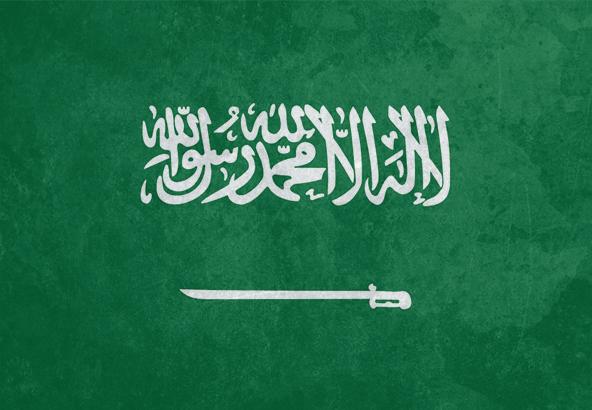
Article(s)
Loopholes in Saudi promise to end death sentences against children
on 6 May 2020
Saudi Arabia’s Human Rights Commission has announced that children are no longer eligible for the death penalty in the Kingdom. Citing a royal decree, the commission stated that anyone convicted of crimes that took place while they were under the age of 18 will face a maximum punishment of ten years in juvenile detention.
2020
Juveniles
Saudi Arabia

Article(s)
Mass executions in Saudi Arabia with more than 100 people executed since January 2019
By Abdoul Razak Ahmadou Youssoufou, on 7 June 2019
The Kingdom of Saudi Arabia once again made its mark on the international scene by executing 37 people sentenced to death for terrorism in six regions of the country on Tuesday, 23 April 2019, 36 of whom were beheaded, while the last was crucified.
2019
Saudi Arabia
Terrorism
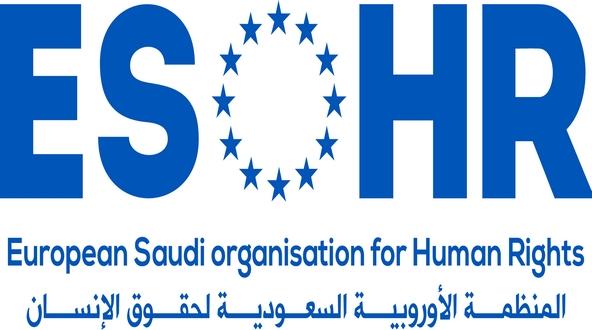
Article(s)
Saudi Arabia’s false promise on the use of the death penalty
By European Saudi Organisation for Human Rights, on 6 February 2019
With 149 executions in 2018, one of the highest rates since the 1990’s, the Saudi Kingdom seems to be locking itself into a violent authoritarian drift
2019
Saudi Arabia
Document(s)
File: Saudi Arabia in the World Day against the Death Penalty, execution of Civil Society
By European Saudi Organisation for Human Rights, on 1 January 2018
2018
Multimedia content
Saudi Arabia
More details See the document
Saudi Arabia uses the death penalty as an instrument against individuals, society and freedoms. It is used far away from any international laws and frameworks as it is applied sometimes on children. These practices have become an approach that includes numerous violations as well as denial of the right to life, such as arbitrary detention, torture and unfair trials. As the world revives the anti-death penalty day on October 10, the European Saudi organization for Human Rights (ESOHR) illuminates it through its figures, the issues it has documented and the campaigns it has led. Through the articles published ESOHR tries to show the usage of the death penalty by the Saudi government as a mean to achieve its goals and to impose silence.
- Document type Multimedia content
- Countries list Saudi Arabia
- Themes list Death Penalty, Country/Regional profiles,
Document(s)
Note verbale dated 7 September 2017 from the Permanent Mission of Egypt to the United Nations addressed to the Secretary-General
By United Nations, on 1 January 2017
2017
United Nations report
Antigua and Barbuda
Bangladesh
Barbados
Botswana
Brunei Darussalam
Chad
China
Democratic People's Republic of Korea
Egypt
Ethiopia
Grenada
Iran (Islamic Republic of)
Iraq
Jamaica
Kuwait
Libya
Malaysia
Maldives
Moratorium
Nigeria
Oman
Pakistan
Papua New Guinea
Saint Kitts and Nevis
Saint Lucia
Saint Vincent and the Grenadines
Saudi Arabia
Singapore
Sudan
Syrian Arab Republic
United Arab Emirates
Yemen
Zimbabwe
aresfrruzh-hantMore details See the document
The Permanent Missions to the United Nations in New York listed below have the honour to refer to General Assembly resolution 71/187, entitled “Moratorium on the use of the death penalty”, which was adopted by the Third Committee on 17November 2016 and subsequently by the Assembly on 19 December 2016 by a recorded vote. The Permanent Missions wish to place on record that they are in persistent objection to any attemptto impose a moratorium on the use of the death penalty or its abolition in contravention of existing stipulations under international law, for the following reasons:
- Document type United Nations report
- Countries list Antigua and Barbuda / Bangladesh / Barbados / Botswana / Brunei Darussalam / Chad / China / Democratic People's Republic of Korea / Egypt / Ethiopia / Grenada / Iran (Islamic Republic of) / Iraq / Jamaica / Kuwait / Libya / Malaysia / Maldives / Nigeria / Oman / Pakistan / Papua New Guinea / Saint Kitts and Nevis / Saint Lucia / Saint Vincent and the Grenadines / Saudi Arabia / Singapore / Sudan / Syrian Arab Republic / United Arab Emirates / Yemen / Zimbabwe
- Themes list Moratorium
- Available languages مذكرة شفوية مؤرخة 7 أيلول/سبتمبر 2017 موجهة إلى الأمين العام من البعثة الدائمة لمصر لدى الأمم المتحدةNota verbal de fecha 7 de septiembre de 2017 dirigida al Secretario General por la Misión Permanente de Egipto ante las Naciones Unidas.Note verbale datée du 7 septembre 2017, adressée au Secrétaire général par la Mission permanente de l’Égypte auprès de l’Organisation des Nations UniesВербальная нота Постоянного представительства Египта при Организации Объединенных Наций от 7 сентября 2017 года на имя Генерального секретаря2017 年 9 月 7 日埃及常驻联合国代表团给秘书长的普通照会
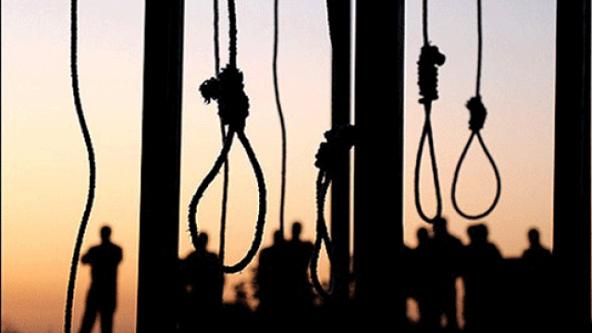
Article(s)
Joint statement from 48 coalitions, networks and human rights organizations from 12 Arab countries
By The Arab Coalition Against the Death Penalty, on 6 January 2016
The statement strongly condemns the execution of Nimr Baqir al-Nimr in Saudi Arabia and renewed its demand for Saudi Arabia to support the United Nations resolution on a global moratorium on the death penalty and to abolish the death penalty in national legislation.
2016
Saudi Arabia
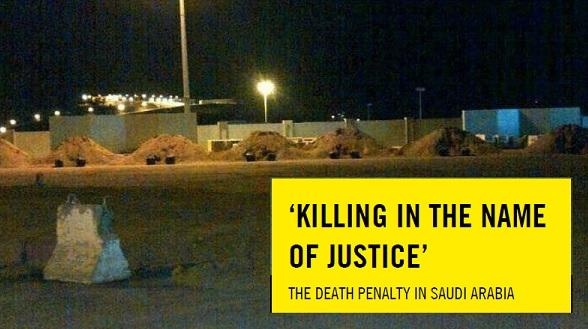
Article(s)
Saudi Arabia: “Killing in the Name of Justice”
By Elisa Belotti, on 7 October 2015
When it comes to the execution of death penalties, Saudi Arabia is one of the most prolific country in the world. This is what emerges from a new report published by Amnesty International in August 2015.
2015
Saudi Arabia
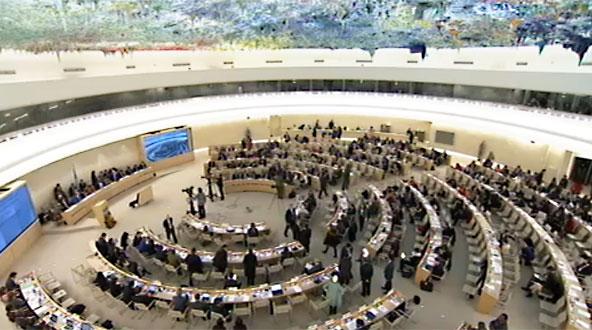
Article(s)
Top UN representatives take stance on death penalty at Human Rights Council
By World Coalition Against the Death Penalty, on 14 March 2014
From UN Secretary General Ban Ki-moon to abolitionist and retentionist government ministers and World Coalition members, participants to a recent discussion on the death penalty placed the issue high on the international agenda.
2014
Afghanistan
Benin
Brazil
Cruel, Inhuman and Degrading Treatment and Punishment
Iran (Islamic Republic of)
Mongolia
Morocco
Myanmar
Namibia
Pakistan
Saudi Arabia
Sierra Leone
Singapore
Sudan
United States
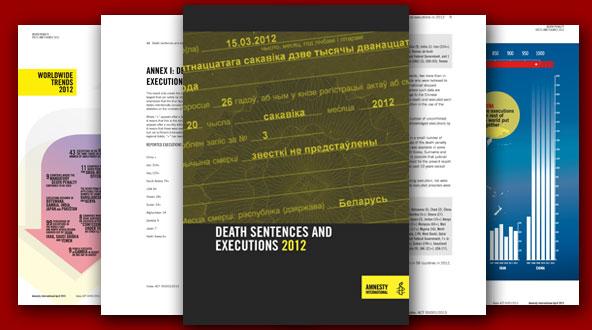
Article(s)
Only one in 10 countries carried out executions in 2012
By Tiziana Trotta, on 10 April 2013
At least 682 people were executed last year aside from China, according to Amnesty International.
2013
Afghanistan
Bahrain
Barbados
Belarus
Burkina Faso
China
Death Row Conditions
Democratic People's Republic of Korea
Egypt
Gambia
Ghana
Guyana
India
Iran (Islamic Republic of)
Iraq
Malawi
Moratorium
Pakistan
Saudi Arabia
Sierra Leone
Singapore
Syrian Arab Republic
Taiwan
Trinidad and Tobago
Viet Nam
Yemen
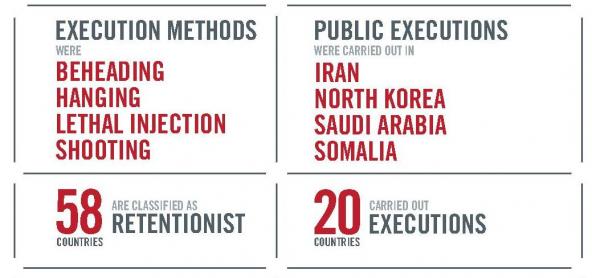
Article(s)
Alarming levels of executions in few countries – Amnesty
on 27 March 2012
In a new report, Amnesty International analyses some of the key developments in the worldwide application of the death penalty, citing figures it has gathered on the number of death sentences handed down and executions carried out in 2011.
2012
Bahrain
Belarus
China
Iran (Islamic Republic of)
Iraq
Moratorium
Nigeria
Saudi Arabia
Sierra Leone
South Sudan
Tunisia
Article(s)
2009 Amnesty statistics: at least 714 executions… excluding China
on 30 March 2010
Amnesty International has released its report on the death penalty in the world in 2009. The organisation has decided to exclude China from its calculation due to the lack of transparency on capital punishment in that country.
2010
Belarus
Burundi
China
Cruel, Inhuman and Degrading Treatment and Punishment
Fair Trial
Iran (Islamic Republic of)
Iraq
Saudi Arabia
Togo
United States
Article(s)
To escape the death penalty: be rich and kill a foreigner
on 24 February 2010
The racial origin of the victim and the social class of the criminal are key factors of discrimination.
2010
Bahrain
Fair Trial
Pakistan
Saudi Arabia
Article(s)
FIACAT: abolition “is part of the mission of the Churches”
on 16 December 2009
Days before the major Christian festival of Christmas, the International Federation of Action by Christians for the Abolition of Torture reaffirmed its Gospel-inspired opposition to the death penalty.
2009
Cruel, Inhuman and Degrading Treatment and Punishment
Iran (Islamic Republic of)
Juveniles
Saudi Arabia
Sudan
Yemen
Article(s)
Amnesty charts death penalty world map and vows to remove Belarus from it
on 25 March 2009
World Coalition member Amnesty International has released its annual statistics on the death penalty and launched a campaign against capital punishment in Belarus.
2009
Belarus
Belarus
China
Iran (Islamic Republic of)
Pakistan
Saudi Arabia
United States
Article(s)
Saudi Arabia slammed over child executions, discrimination
on 21 February 2009
United Nations agencies, governments and NGOs criticised Saudi Arabia’s death penalty record at the UN’s universal periodic review of human rights.
2009
Juveniles
Saudi Arabia
Article(s)
Saudi Arabia: why are foreigners losing their heads?
on 26 March 2008
Rizana Nafeek, a Sri Lankan servant sentenced to death by a Saudi court, is facing decapitation. ACAT-France and ECPM have joined forces to defend poor immigrants at risk of capital punishment in Saudi Arabia.
2008
Fair Trial
Juveniles
Legal Representation
Saudi Arabia
Women

